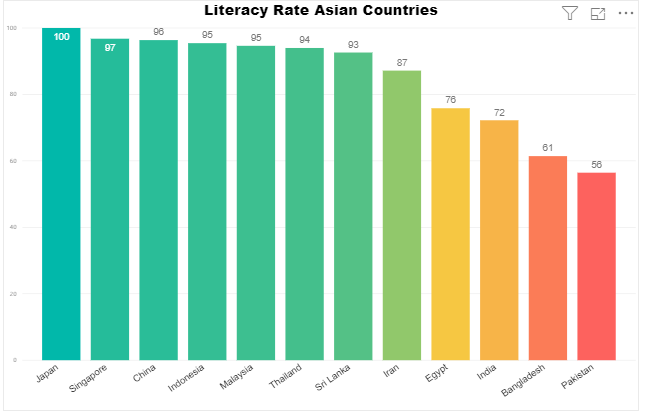Saving Haleema and Hamid: Two Organizations on a mission
(Adult Learning)
They have a drug addict father, a mother who works as a maid, and four younger siblings who need to be fed. Therefore, for Haleema, 14, and Hamid, 15, life is nothing but a continuous struggle, not for themselves but the family. With no education and little time to spare for this purpose, they have little hope for their future. Two organizations chalk out an adult learning plan to save the fortunes of Haleema, Hamid, and millions of others like them.
For 12 hours a day, Haleema serves a terminally ill lady in an upper-middle-class neighbourhood of Karachi. Her mother collects her salary every month, which is used to feed the children and sponsor her husband’s addiction. Haleema’s work is easy, as the old lady spends most of her day watching TV; however, she can’t leave the house to pursue her education.
Similarly, her brother works at a puncture shop for twelve hours daily, and he returns home around 10 pm. Unlike his sister, he is paid every week. Indeed, every penny he is paid goes straight to his mother. Just like his sister, Hamid has free time at the puncture shop. However, he can’t leave the place to attend any learning classes.
Just like Haleema and Hamid, approximately 60 million non-literate Pakistanis youth live in poverty right now. In other words, there are 60 million under the age of 30 years Pakistanis who can’t read or write! Unfortunately, most of them can’t leave their place of work to receive formal education. Undoubtedly, now is the time to use technology to help these individuals.


First, adults are more independent in their learning. They decide the time, place, and content without depending on someone. Meanwhile, children rely on an adult for their learning needs.
Secondly, they relate what they learn to their experiences. On the other hand, children have little or no relationship between their learning and experiences.
Next comes social responsibilities or growth opportunities. Adults learn to progress in life and career. Whereas; children learn because adults want them to do so. Moreover, learning is not a way to increase their income, productivity, or social status.
Furthermore, unlike children, adults immediately apply what they have learned. For example, adults will use their reading skills to read a newspaper. In comparison, most children will have little practical use of this skill.
Finally, adults learn because they know the benefits of learning. This realization that education has benefits provides internal motivation to adults for learning. On the other hand, children have to be motivated to study.
Unfortunately, some of what is said in this adult learning theory does not apply to Pakistani adults.
First, not all Pakistani adults are independent in their learning. They spend long hours at work, where the “boss” does not allow them to take off even for an hour for learning.
Secondly, due to poor self-image, they cannot visualize any role learning can play in their self-development. Therefore it’s not easy to motivate the non-literate to learn.
Literate Pakistan Foundation (LPF) provides innovative literacy and education programs for Pakistani adults. These programs are technology-based and run on a smartphone. A non-literate adult can complete primary education in one year by watching video lessons on their mobile phone. We also provide them with complete support.

However, this innovative solution solves only one problem the non-literate Pakistani adult faces: the ability to get an education anytime without going anywhere.
But the Pakistani’s adult still needs motivation, mentoring, and financial support to complete education.
Commecs College enters into the picture. Commecs College is a project of Commecs Educational Trust founded by the alumni of the Government College of Commerce and Economics. The mission statement of the College says:
“To equip the students with practical knowledge for meeting the challenges of the new millennium with confidence, grace, and competence. To prepare future leaders of business and society.”

